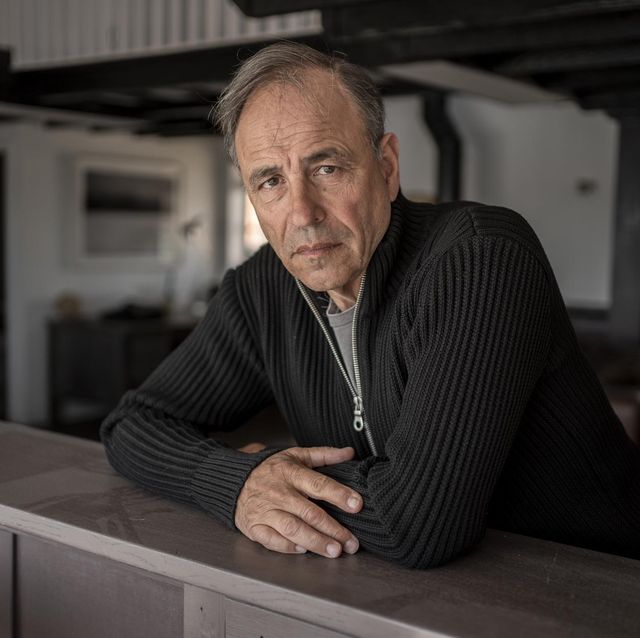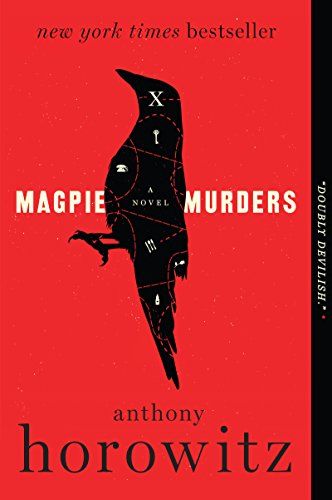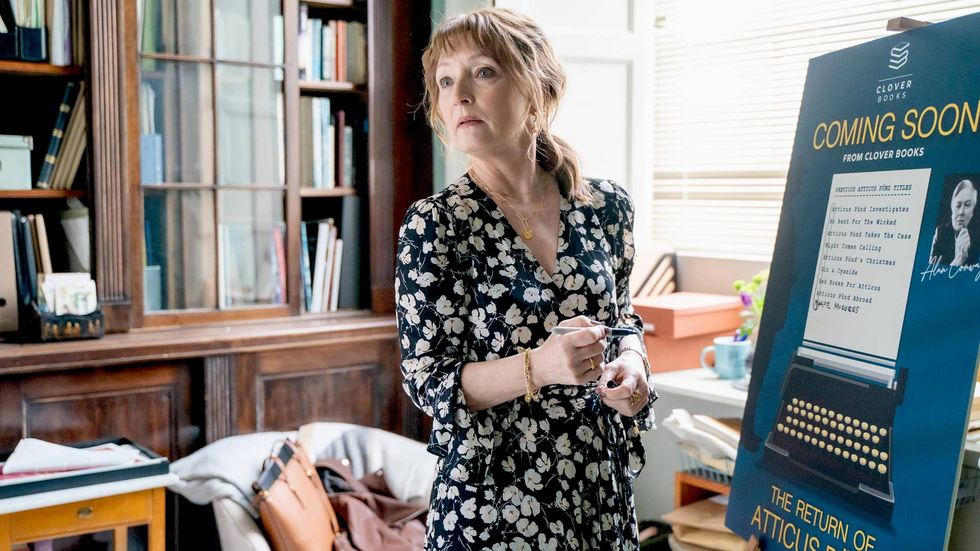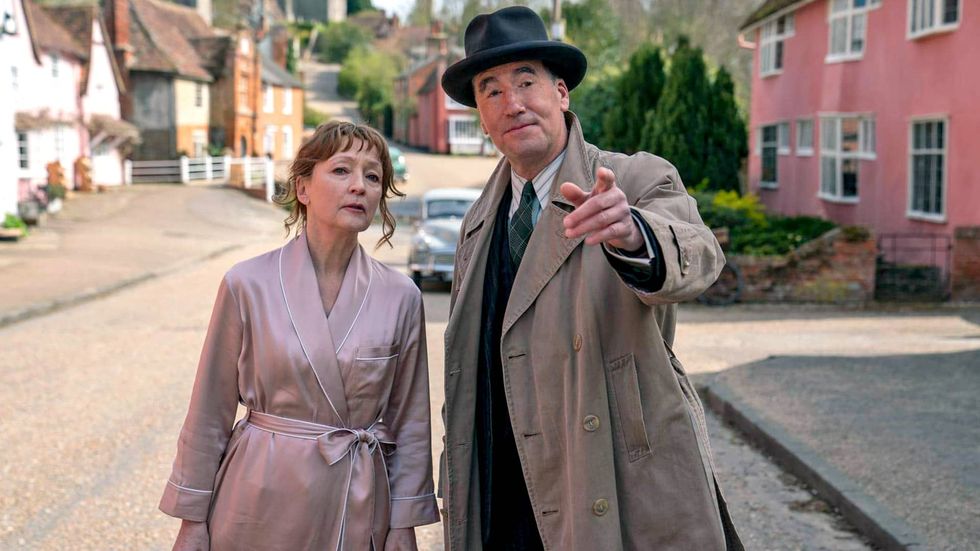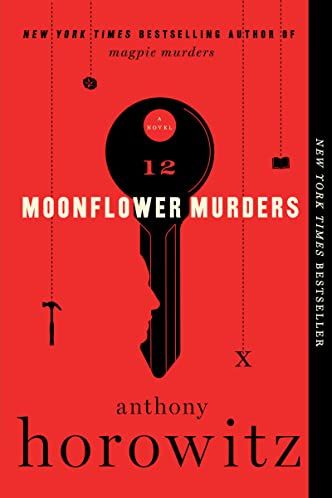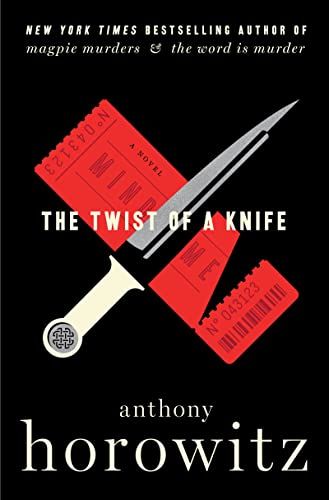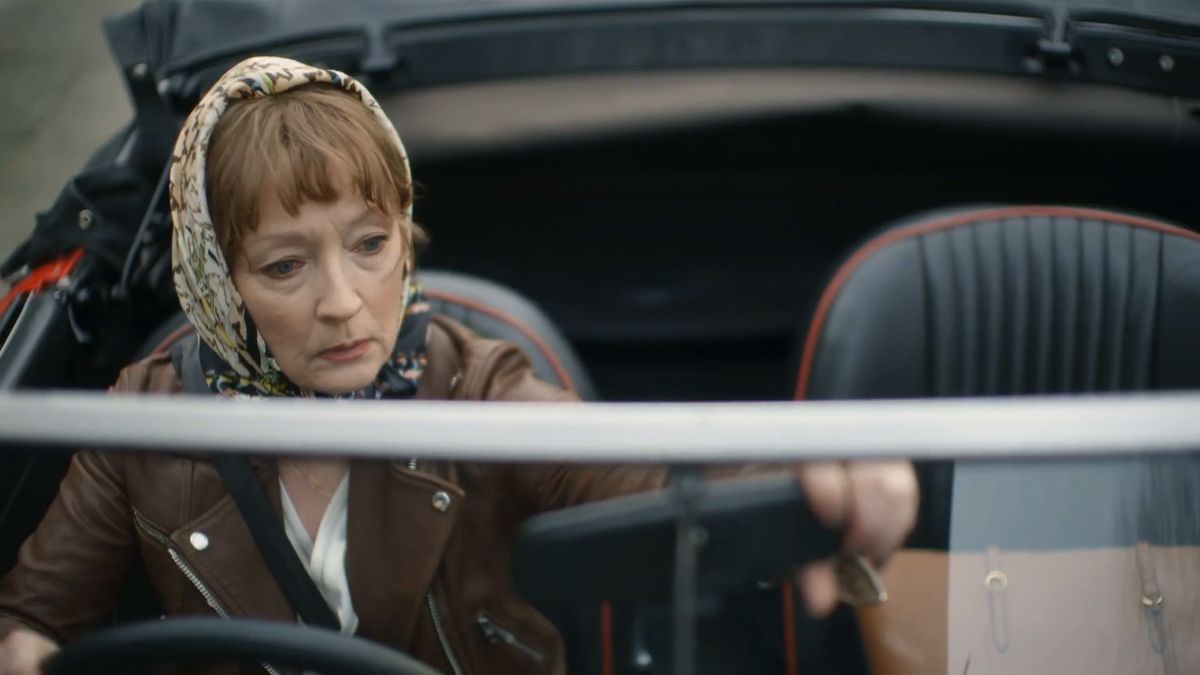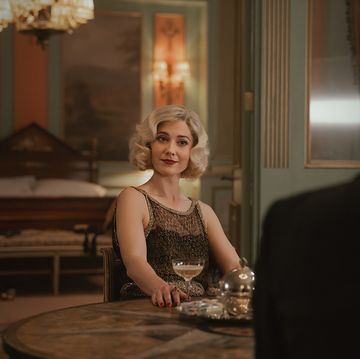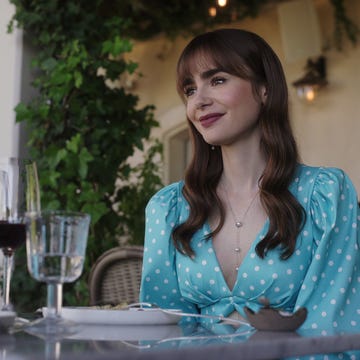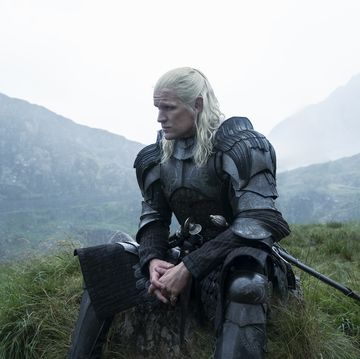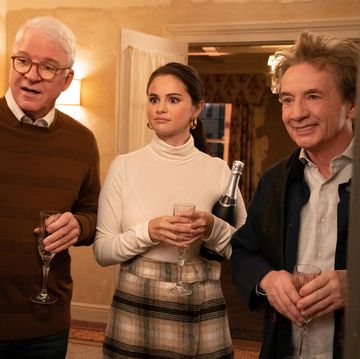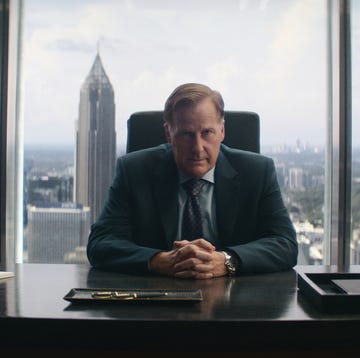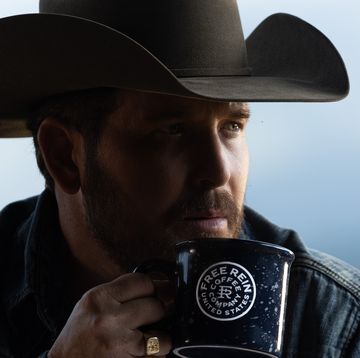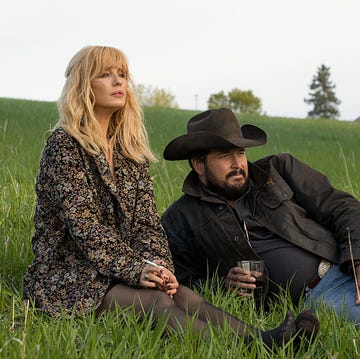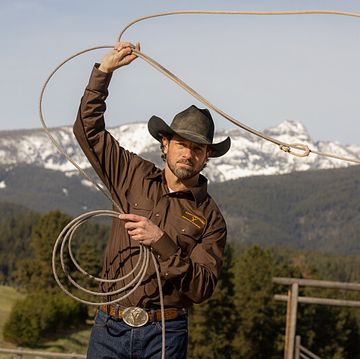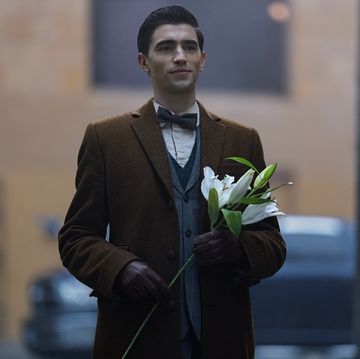2022 is the year of Anthony Horowitz. His bestselling novel Magpie Murders is coming to television; his fourth Hawthorne mystery The Twist of a Knife is set to be released next month; and he published both his third James Bond book, With a Mind to Kill and a new children's book in the Diamond Brothers series, Where Seagulls Dare. He was also appointed a Commander of the Order of the British Empire (CBE) in the 2022 New Year Honours by the late Queen Elizabeth. Oh, and he moved.
But every year seems to go like that for the prolific British author. How does he get it all done? "I guess the short answer is that I just love it," Horowitz tells Town & Country over Zoom from his home in early September. "I love writing. I love thinking of ideas. I love producing new books. I love the interaction when a book comes out with my readers. I can't stop myself—it's sort of an addiction. So I just keep on taking on more and more work."
"All my work excites me," he adds. "I'm always excited. Always looking forward to tomorrow, always can't wait to get back to do my next bit of writing."
Here, Horowitz speaks with T&C about the new Magpie Murders series—and how the show is a lens into his perspective on the murder mystery genre.
Magpie Murders is unique in that it is a story within a story. The TV show intertwines these two narratives. What was it like to adapt it this way?
It was an extremely difficult adaptation. The book is about 650 pages long. It's incredibly complicated. It has a fictional world of Atticus Pünd versus the real world of Susan Rowland. It has many, many subplots, many characters. And as you correctly say, the book is in two halves—the first half takes place in 1955, the second half in the modern world. None of this worked for television.
I didn't know [if I would] be able to adapt it, but my wife, Jill Green, who is a producer on the show, gave me some absolutely brilliant notes on how to do it. Her first note was the show had to rest on the shoulders of Susan Ryland; Susan Ryland would be our guide through the maze. And when we cast Lesley Manville on the show, that cemented it. Because if we had adapted the TV series the way the book is written, Lesley Manville would not have turned up until episode three or even four, and you cannot have a star of that stature and that value appearing halfway through your show.
So having said that Susan Ryeland would appear from episode one of the show, I realized what I had to do was to mash the two periods together—the past and the present, the fictitious and the real. And that meant you could slide from one to the other in a way that would be completely unique and never been done before, as far as I can tell, on television. The result is that you have this peculiar, enjoyable mix up of modern crime and golden age crime with two wonderful characters: Atticus Pünd played by Tim McMullan and, Susan Ryeland, an editor played by Lesley Manville, who begin an inter-dimensional affair.
Somehow, it will make sense. I think the most difficult thing of all for me was to make this show [both] enjoyable and puzzling for an audience, with three murders to solve—and yet not to make it confusing, so everybody would know where they were at exactly the moment something is being shared. When you're watching television, you don't have the facility to go back and flip through the pages and work out who somebody is. You've got to know all the time. So simplicity was the key in a very, very complicated setup.
I read that you first thought about the concept, which is more broadly a commentary on the murder mystery genre, while working on Midsomer Murders in the late 90s. Can you share more about this?
That's where it began. The idea for Magpie Murders started with my desire to write a book about writing. I was inspired by William Goldman's book Adventures in the Screen Trade, and by Steven King's wonderful book On Writing. I wanted to do a version of my own cause I had written so many different things; theater, cinema, television, books, children's books, adult books, radio—I've done it all. I thought it would be a great idea to write a book about writing. I wrote one chapter for and realized it was actually incredibly boring. I wasn't doing a very good job at all. And then I thought, maybe I can write a murder mystery set in this world. And do the same thing, have an opportunity to to ask questions like 'why is it that a murder in the street is disgusting and horrible, whilst a murder on the page is entertainment? What happens to murder in a whoddunnit?' Questions like that, why we read these books, how they work, the role of the detective in a murder mystery story.
How do you view the question of murder as entertainment, and the difference between mystery stories and true crime?
I'm not very interested in writing gory, violent, horrible stories. There's enough violence in this world at the moment for us not to need it. My books are meant to be—if not an escape, then at least sort of a refuge from the sort of storms that are blowing all around us, whether it's in America, where it seems democracy is in danger and obviously in Ukraine and what is happening there; in this country, where there are so many issues...
Murder mystery is an opportunity to close the shutters, to draw up the bed clothes, to make yourself that hot chocolate with marshmallows and sit back and like Sherlock Holmes, just revel in the intellectual pursuit of truth.
And that's what a murder mystery, is pure and simple: an opportunity to make the world a better place. A detective arrives in a troubled community where everybody is at each other's throats, where there is a dead body, where there is suspicion, anger, enemy, resentment, fear. And by the time they leave that society, that community, has healed itself. There's a sense that everything is all right in the world. And I think that detective stories—murder mysteries—unlike true crime, which often are not solved. But in a detective story like mine, the resolution, the sense of everything is all right, is really core to why these books succeed.
When you're writing stories where the resolution is so important, how do you make it into a series and continue the next book?
Well, Magpie Murders, of course, has a sequel, Moonflower Murders. We hope to shoot next year—I very much hope this time next year I'll have finished writing the script. And Twist of a Knife is number four in a series of another detective series with a detective called Hawthorne. These are complete murder mysteries in themselves, but the arc of it is trying to discover more about Hawthorne, and my relationship with Hawthorne. So you travel with me in these books, you travel through one adventure after another, one murder after another, always with whispers and turns and surprises, but in pursuit of the final truth—which is who is Hawthorne, where does he come from, what made him the sort of man he is?
Is it strange to write yourself as a character?
Well, my publishers were very nervous when I suggesting me as the sidekick—sounds a bit like an ego trip. But what I always have to explain to people, I am not the central character in this book. I'm just a narrator, I'm the sidekick, I'm the Watson to Hawthorne's Holmes. And the book's all about Hawthorne, not about me. And the character in the books is me; I mean, it is my life, it is my wife, my children, my work in film and TV and books, my publishers, my agents. It is the real me, but not in a way that you notice. I'm a bit character of my own book.
When you're working on a new story, do you know the murder right off the bat? Or do you write your way into it?
I spend an awful lot of time planning the books before I write a word. So yes, of course I know who the murder it is. If you can imagine a darts board... the bullseye, the center of the darts board is this: It's A plus B equals C. A is one person. B is the other person. C is the reason why A kills B. And that's where I begin, that little dart board. But then I have to say to myself, who is A? who is B? Maybe one is a doctor, so in the outer ring, I get start off creating hospitals and surgeries and patients and the world of medicine. Maybe the other person is an actress. So then I might think about television, film, and sets. And they have friends, they have family, they have people who hate them, people who love them. Gradually you build up with things. It's all got to be totally woven together.
I'm trying to write murder mysteries where the reader has every opportunity to solve the crime, where all the clues are there in plain sight. When you get to the end of the book, if you solve the book, you could be pleased with yourself. If you don't solve it, you should kick yourself because you could. I think that was the success of Agatha Christie; I think that's what she did so well in her books. She never cheated the audience. I play scrupulously fair.
I'm also trying to do things that nobody has done before. I can tell you, the clue in the third Atticus Pünd novel, which I'm already planning, it's something that has never, ever been done in a book. And I can't wait to write it—simply cause I wanted to have this clue in that.
Do you ever read a murder mystery and think, oh man, wish I did that? Or 'that's a good twist'?
Actually that's one of the reasons why sometimes think I shouldn't read murder mystery. When I come across a clue—I'll tell you the last time that happened. Ira Levin wrote a wonderful murder history called A Kiss Before Dying and it had perfect clue in it. I thought to myself, damn you, if you hadn't read that book, you might have come up with that clue.
When someone is reading your work and trying to solve it, what advice do you have for them in looking for those clues?
Never believe anything the sidekick says; the sidekick is always wrong.
Don't necessarily think it's the least obvious person. Sometimes the writer gets the pleasure of making it the most obvious person who's the killer.
And what's a third piece of advice I'd give? Go with your gut, go with your gut instinct, and then find the clues and support it. But I'm not very good at solving crime myself, with other people's books. So I don't think my advice is worth that much.
Magpie Murders premieres Sunday, October 16 at 9/8c on Masterpiece on PBS; The Twist of a Knife, the fourth Hawthorne mystery, comes out November 15. It is currently available for preorder.
Emily Burack (she/her) is the Senior News Editor for Town & Country, where she covers entertainment, culture, the royals, and a range of other subjects. Before joining T&C, she was the deputy managing editor at Hey Alma, a Jewish culture site. Follow her @emburack on Twitter and Instagram.
